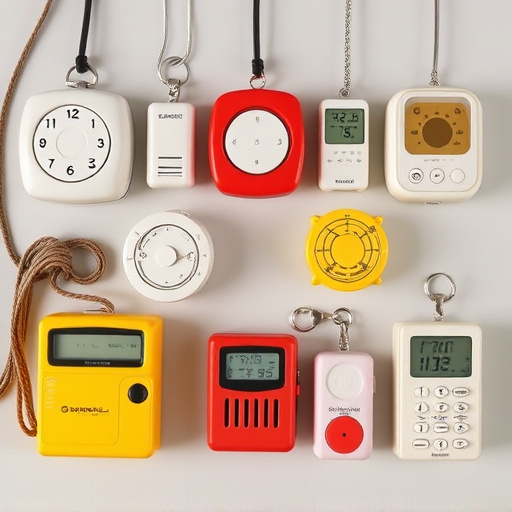Police Recommended Personal Safety Alarms (ELDs) are compact GPS devices for distress situations, offering precise tracking, automatic fall detection, and quick alerts to emergency services via GPS and alarm. Endowed with durable construction, water resistance, long battery life, and compatibility with apps, these beacons provide peace of mind for outdoor enthusiasts and solo travelers, enhancing response times and safety in high-risk environments. Responsible use includes activating alarms only when threatened, understanding local laws, maintaining devices, and communicating their presence to avoid unnecessary strain on emergency services.
Personal Protection Beacons with GPS are revolutionary tools designed to enhance individual safety, especially in remote or dangerous environments. This article delves into the intricacies of these devices, exploring their role as essential safety alarms. We examine GPS technology and its impact on navigation, and discuss the police endorsement that underscores their effectiveness. Furthermore, we guide readers through key features to consider for optimal protection and responsible usage of personal safety alarms recommended by law enforcement.
- Understanding Personal Protection Beacons
- GPS Technology in Safety Alarms
- Police Endorsement: Benefits and Trust
- Features to Consider for Effective Protection
- Using Personal Safety Alarms Responsibly
Understanding Personal Protection Beacons
Personal Protection Beacons, often dubbed as emergency location devices or ELDs, are compact, portable gadgets designed to enhance personal safety by providing precise GPS tracking in distressing situations. These beacons are not just a fad but a highly recommended tool by law enforcement agencies worldwide for individuals who frequently venture into remote areas or face high-risk environments. They serve as a crucial safety net, enabling users to quickly alert emergency services and provide their exact location during emergencies like accidents, getting lost, or encountering dangerous situations.
Unlike traditional alarm systems, these beacons are lightweight and designed for ease of carrying, allowing users to activate them effortlessly when needed. Many models feature automatic fall detection and GPS-enabled tracking, ensuring swift response times by emergency personnel. With advanced technologies like satellite connectivity and long battery life, personal protection beacons offer peace of mind, especially for outdoor enthusiasts, solo travelers, and those working in isolated locations, making them a popular choice for police-recommended personal safety alarms.
GPS Technology in Safety Alarms
GPS technology has revolutionized personal safety alarms, making them more precise and reliable than ever before. These advanced devices utilize satellite navigation systems to track an individual’s location in real-time, providing a critical tool for emergency services when activated. By integrating GPS with other sensors, personal protection beacons offer accurate data on not only the wearer’s position but also their movement and speed, enhancing response times during emergencies.
In many cases, police-recommended personal safety alarms incorporate GPS technology, ensuring individuals have access to cutting-edge protection. These devices are designed to be compact, durable, and user-friendly, allowing wearers to discreetly carry them for everyday use or in high-risk environments. With a simple press of a button, users can send their GPS coordinates to emergency contacts or local law enforcement, facilitating swift action and potentially saving lives.
Police Endorsement: Benefits and Trust
Personal protection beacons with GPS that are police-endorsed offer a heightened sense of security and peace of mind for individuals concerned about their personal safety. These devices are designed to quickly alert emergency services in case of distress, utilizing both GPS tracking and alarm features to ensure swift response times. The endorsement from law enforcement agencies adds an extra layer of trust, assuring users that these products meet stringent criteria for reliability and effectiveness.
By recommending specific personal safety alarms, police departments validate the functionality and performance of these devices, knowing they can provide vital assistance in critical situations. This endorsement not only assures potential buyers but also enhances the credibility of the product, making it a preferred choice for those seeking robust protection while traveling or engaging in outdoor activities.
Features to Consider for Effective Protection
When choosing a personal protection beacon with GPS, several key features contribute to its effectiveness. One of the most crucial aspects is the device’s reliability and accuracy in tracking location. Advanced GPS technology ensures precise positioning, enabling rapid response from emergency services or law enforcement. Features like automatic fall detection and panic buttons further enhance safety by instantly alerting authorities in case of distress.
Additionally, durable construction and water resistance are essential for outdoor activities and unpredictable conditions. Long-lasting battery life is another vital consideration, ensuring the device remains operational during extended use. Compatibility with popular mapping apps and integration with smart devices can also streamline user experience, providing a comprehensive personal safety solution. For instance, police-recommended personal safety alarms often incorporate these features to offer robust protection in various environments.
Using Personal Safety Alarms Responsibly
Personal safety alarms, often recommended by police for added protection, are powerful tools when used responsibly. These devices can be a game-changer in emergency situations, drawing attention and signaling distress swiftly. However, their effectiveness hinges on proper usage; individuals must activate them only when genuinely threatened or in danger. Misusing personal safety alarms, such as setting them off unnecessarily, could lead to false reports, causing unnecessary strain on emergency services and potentially harmful consequences for the user’s reputation.
Responsible use entails understanding the alarm’s capabilities and limitations. It’s crucial to familiarize yourself with local laws regarding personal safety alarms and their deployment. Additionally, ensuring the device is well-maintained and easily accessible during emergencies is essential. Regular testing and clear communication about its presence and purpose can significantly enhance personal safety, especially when venturing into unfamiliar or potentially hazardous areas.
Personal protection beacons with GPS technology have emerged as a powerful tool for personal safety, backed by police endorsement. These devices not only provide real-time location tracking but also enhance emergency response times. When choosing a Police Recommended Personal Safety Alarm, consider advanced features like automatic fall detection, long battery life, and waterproof design to ensure maximum effectiveness in various situations. Responsible use of these alarms can significantly contribute to individual safety and peace of mind.
